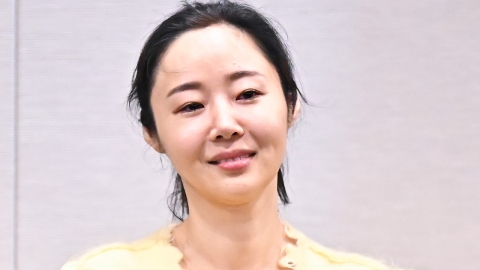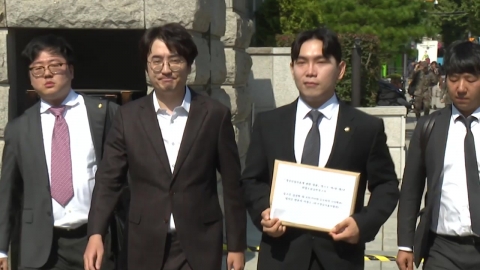The Bank of Korea's Monetary Policy Committee cut its key interest rate for the first time in three years and two months today.We dropped 0.25%p from
3.5%.
This is to revive the domestic economy, which has been suppressed by high interest rates and prices.
I'm connecting with the reporter. Reporter Lee Seung Eun!
Attention was focused on whether the Bank of Korea's Monetary Policy Committee would cut it this time or whether it would lower it next month after further confirming the trend of slowing household debt growth.
So we finally decided to lower it by 0.25%p?
[Reporter]
That's right.
The Bank of Korea's Monetary Policy Committee lowered its key interest rate, which stood at 3.5 percent, by 0.25 percentage point to 3.25 percent.
It has changed monetary policy in three years and two months after 13 longest freeze marches, which lasted from February last year to August.
Let's listen to Bank of Korea Governor Lee Chang-yong's announcement firsthand.
[Lee Chang-yong / Governor of the Bank of Korea: First of all, the need to ease the tightening by cutting interest rates has increased as inflation has strengthened monetary tightening in terms of real interest rates and uncertainties in growth prospects have increased. On the other hand, in terms of financial stability, as household debt measures began to take effect, the government said it would implement additional measures if necessary, and the U.S. Federal Reserve shifted its policy stance, easing the burden on the foreign exchange sector. Therefore, it is appropriate to cut the base rate by 25 basis points today and check its impact and internal and external policy conditions.]
The slowdown in inflation and household debt growth played a major role in the background of the rate cut.
Consumer price growth was 1.6 percent last month, the lowest in three and a half years.
As of the end of last month, the amount of household loans at the five major banks was 730.9 trillion won, up 5.6 trillion won from a month ago, and the growth rate decreased by about 4 trillion won.
The increase in apartment prices in Seoul in the first week of October, which was announced yesterday, was also 0.1%, slowing the growth rate for the fourth week.
In addition, the interest rate gap with the U.S., which had widened to 2%p since the start of the U.S. rate cut, has narrowed to 1.5%p, reducing concerns about rising exchange rates and outflows of foreign funds.
Against this backdrop, the need to support the domestic economy, which has been suppressed by high interest rates and high prices, has grown.
Private consumption fell 0.2% in the second quarter, facility investment fell 1.2% and construction investment fell 1.7%.
As a result, real GDP in the second quarter was 0.2% lower than in the first quarter.Although the rate cut cannot be delayed due to the fact that
interest rate cut, attention is focused on the ripple effect and countermeasures as there is a concern that the growth of household debt, which has slowed down due to strong regulations, will revive.
Even if the loan interest rate falls only by the cut in the base rate, the interest burden on household borrowers is estimated to be reduced by 3 trillion won per year.
Some estimate that a 0.25%p drop in lending rates would increase the national house price growth rate by 0.43%p in a year, while Seoul's rise would reach 0.83%p.
I'm Lee Seung Eun of YTN.
※ 'Your report becomes news'
[Kakao Talk] YTN Search and Add Channel
[Phone] 02-398-8585
[Mail] social@ytn.co.kr
[Copyright holder (c) YTN Unauthorized reproduction, redistribution and use of AI data prohibited]
Economy
View the full list of articles- This year, the sale price of apartments in Seoul has jumped 20 million won per 3,3㎡.
- Base rate cut by 0.25%p...Monetary easing for the first time in three years and two months
- MBK "Koryo Zinc buying will increase, irreversible impact"
- [NewsNow] Base Rate Cuts To '3.25%'...Austerity Ends After 38 Months, "How Will It Be Different?"






![[After playing the game] Between "Soul-like" and "Action-like"...Which one?](https://image.ytn.co.kr/general/jpg/2024/1011/202410111054554736_h.jpg)
